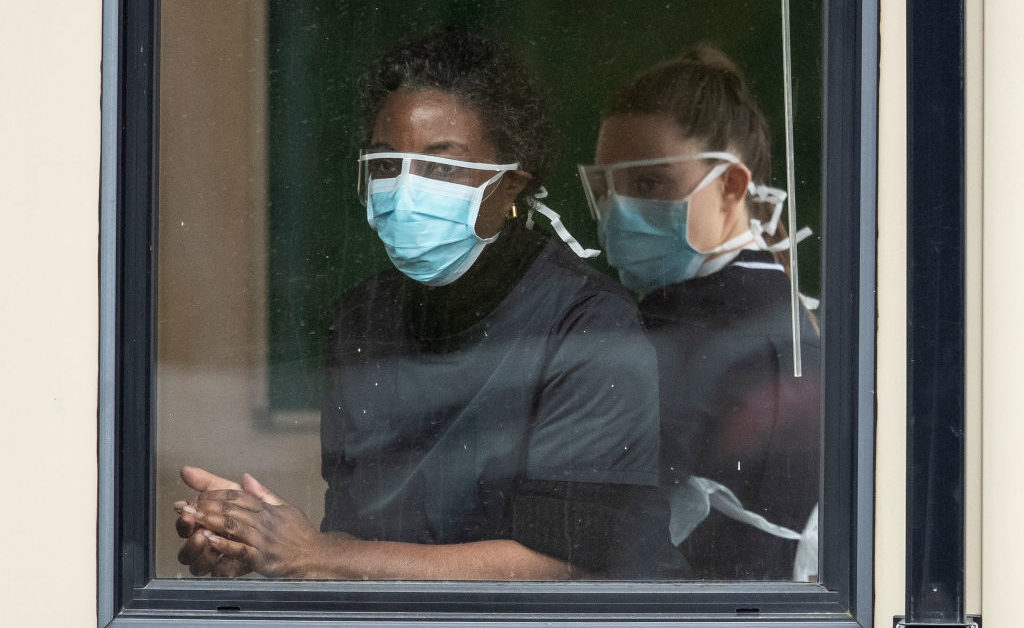COVID-19 and the Black Lives Matter protests have drawn attention to systemic racism and the inequalities in healthcare that result from it. For this Special Feature, Medical News Today asked its experts, “What do you wish people knew about health inequity?” We share their answers below.

At MNT, we have zoomed in on some of the inequalities in healthcare that COVID-19 has exposed by interviewing experts and looking at the evidence available.
We looked at the disproportionate effect that COVID-19 is having on black communities in the United States, the public health impact of police violence, and the impact that incarceration may have on the new coronavirus spread, to name a few of the issues in the spotlight.
But COVID-19 has only served to exacerbate inequalities that were already present before the pandemic started.
In this Special Feature, we examine health inequities more broadly and the way they are impacting people of color in the U.S.
Specifically, we are sharing with our readers what MNT’s experts want them to know about these issues.
Dr. Angela Bell, double board certified in internal medicine and sports medicine, spoke to MNT about what health inequities mean, and how she perceives them through her medical practice.
“My patient population is mostly African American, and this population suffers from health inequities. Health inequities are differences in healthcare and health outcomes that occur because of race/ethnicity, socioeconomic status, age, location, gender, disability status, or sexual orientation.”
“The risk for health inequities,” she explained, “is compounded with suboptimal ‘social determinants of health.’ People with lower education, lower income, smaller support systems, less access to quality care, and quality foods experience poorer health outcomes.”
Wealth and income, specifically, play a key role. In the relationship between income and health, COVID-19 has made it apparent that disparities in the former lead to disparities in the latter.
Debra Rose Wilson, RN, Ph.D., associate professor in the Nursing School at Tennessee State University in Nashville, explained for MNT that, in turn, health inequities further deepen the income disparities, leading to a vicious circle. “Health inequities cost everyone financially,” she said.
“People trapped in inequities cannot change their situation easily. For example, the poor are at higher risk for obesity, not because they eat too much or are lazy, but because they cannot afford high quality health[ful] foods to prepare for their family. It is less expensive to feed their family foods [that] contribute to obesity.”
– Debra Rose Wilson, RN, Ph.D.
“Those who are poor cannot exercise easily because their neighborhoods may not be safe for walking, and a gym membership is not achievable. The poor don’t have access to community education programs, such as cooking or yoga classes. The costs of obesity end up as costs of healthcare that have to [be] paid.”
“Programs [that] target health inequities to help develop education, health[ful] food access, and family support help reduce the disparity,” added Wilson.
Research that MNT reported has shown that “Across virtually every type of therapeutic intervention in the U.S., ranging from high technology procedures to the most basic forms of diagnostic and treatment interventions, [Black people] and other minorities receive fewer procedures and poorer quality medical care than [white people].”
This disparity is largely due to a wide variety of biases and stereotypes in healthcare.
Femi Aremu, PharmD, Medical Integrity Pharmacist at Healthline Media, explained for MNT:
“Black people in America are often perceived by healthcare professionals to be lying about physical pain. This bias can cause Black people not to seek medical attention when necessary and increase misdiagnoses. Believe Black people.”
– Femi Aremu, PharmD
Dr. Valinda Riggins Nwadike, MPH, echoes a similar idea and also expressed the sentiment that all too often, healthcare professionals do not believe or hear Black people.
As a result, there is a growing mistrust of healthcare professionals among African Americans, which has negative consequences in itself, further deepening the disparities and reserving q

